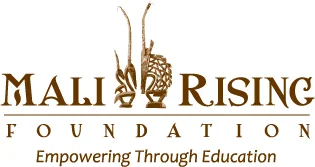As we wrapped up one school year this June, I was already shifting gears to plan for next school year! As part of that planning, I think a lot about how to make the largest difference for our teachers and, through them, our students. One of my favorite campaigns I work on is our Intensive Teacher Training Campaign. One reason I like it so much: our teachers and principals love it!
Girls Discover the Joy of Reading
Connecting Principals Across Vast Distances
Principals in Mali have a hard job and they are often literally hours away from any peers. These principals face struggles with students, parents, and bureaucracy and can often feel quite alone. The principals at the 28 Mali Rising partner schools are no exception.
That’s why a few years ago we established the Principals’ WhatsApp group. This group uses a tool nearly everyone in Mali uses, WhatsApp, to allow our principals to know each other and share useful information and experiences.
Principals Party at Year End!
Being a middle school principal is a hard job no matter where you are. But being one in Mali is particularly tough! Mali Rising principals are in remote places, far from their families or professional support. They manage young teachers and parents who are often unfamiliar with the education system. Many have classes with 100+ students in them. Sometimes, a principal needs a little support and maybe just a little fun when they face this reality day to day!
A Mali Rising donor wanted to find a way to give just that to our principals this year — an experience that would make them feel like someone saw just how hard they worked. So with that donor’s support we set up a year-end party for the principals. We gathered 19 principals at a national park outside of Bamako for a day of relaxing, good food, games, and awards. Read on to hear what one principal thought of the experience…
FLIP Results Roll In
The second year of our effort to help students improve their language skills — the French Language Improvement Project — was a big success! FLIP focuses most heavily on giving students the vocabulary they need in the classroom and improving reading comprehension so that students can study textbooks more easily. In these areas, students improved by 24% (compared to -2% for the control) and 18% (compared to 7% for the control). Read more about the results and how FLIP works….
Jumpstarting Language Skills
Students in Mali face many challenges, but maybe the largest is that classes are taught in a language – French – which is not their mother tongue. If a student doesn’t quickly learn French, they fall behind in all of their classes, from history to math. That’s why Mali Rising runs the French Language Intervention Project, aka FLIP. FLIP helps 7th graders improve their French skills in speaking and writing, as well as their vocabulary and comprehension. This helps students understand their teachers in the classroom, as well as making it possible for them to read their texbooks or ask questions during class.
Better Teachers = Better Students
Once teachers in Mali leave their teaching program, they very rarely recieve any additional training or support. I’ve known teachers who have taught for more than 20 years and never had a day of addtional training ! That’s why Mali Rising steps up to train teachers – to be good at your job everyone needs a refresher and to learn new skills now and then. Each year, we focus intenstive training and peer support on a group of about 30 teachers. One of those teachers, Amidou Diarra, explains how the intensive work has helped him.
Teachers Need Teachers!
Teachers face many challenges while doing their teaching job. These include a lack of teaching materials, textbooks, trainings and peer meetings. To help teachers in our partner schools improve their work and help students succeed in school Mali Rising Foundation provides teacher training, peer meetings, materials, and more. Of all the support we offer, one teacher told us peer meetings are his favorite. Why?
A Mother-Daughter Debate
Educating a child involves more than the dedication of that child – it takes everyone’s help. This is way the Girls’ Project works hard to engage the parents – and especially the mothers of our girls – in the drive to educate girls. This year, I’ve had several meetings with female leaders in our partner villages to solicit their help in organizing mothers’ support for girls’ education in the villages. This month, we brought the mothers and their daughters together to discuss girls’ education.


